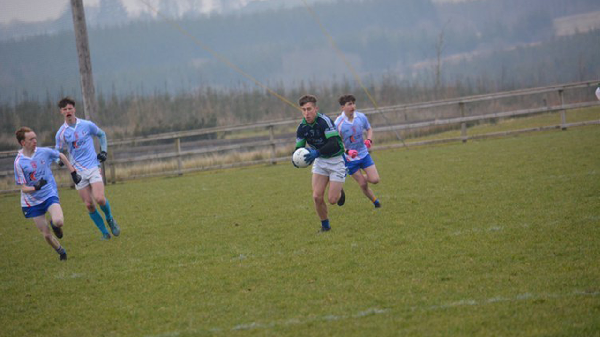28/01/21 (6 Minute Read)

Now that the New Year is upon us, we're heading into the so-called ‘dreaded pre-season’ training period. But it doesn’t have to be a slog. Below, I’ve outlined five tips that you can follow in order to get the greatest benefit from the pre-season and make it less daunting.
The first thing to do at the beginning of the pre-season is to have any recurring injuries assessed. Ideally this would be done in the off-season but it’s never too late to get an injury checked. So whether you’ve a new injury or a pre-existing niggle, go to a physio and get your body ready for the pre-season.
The last thing you want is to be carrying an injury with you into the new season, where it could set you back or prevent you from working at 100%. If sorting out an injury means missing a few sessions at the beginning of the season, then that should be the priority. It's a long season and it's always better to miss a session or two in the pre-season than the week of Championship.
Gym work should be continued through pre-season and during the actual season. The aim is to develop general strength and aerobic capacity. The sessions can be very general for the first weeks of pre-season before slowly getting into more specific stuff like power work during the season.
Remember, you're just looking to set yourself a foundation for the season ahead. It's important not to hit the gym four or five times a week. This isn't necessary and may lead to you overtraining. Quality and consistency are the most important things when it comes to gym work. It's far better to get in one gym session a week over the course of a year than start by going three times a week for a month, and then not going for the next two months. Consistency is key.
Where possible, it can be very beneficial to get an extra pitch session in sometime during the week. This shouldn't be a session where you spend an hour running laps of the pitch. Instead, your aim should be to develop speed and agility qualities.
Accelerate, decelerate, and change direction. These movements will have the greatest transfer over to matches. Additionally, they can contribute to injury reduction by preparing yourself for the actions performed on the pitch. These sessions should be short in terms of volume but high in intensity. Always work at 100% with lots of recovery time so you can go at 100% again. Check out my speed article for more info on this.
It’s worth noting, you’ll probably be flogged with running as soon as you return to club training (where there is way too much volume of running). If you feel like you're falling behind or not up to the standard of some of your teammates, don't stress. The worst thing you can do is add more long distance running sessions into your pre-season weeks and end up with an overuse injury of some sort. This will only set you back further. Start with one short intense session a week of some of the things discussed above, but only if your recovery is right.
Speaking of recovery. Like speed and agility drills, recovery is important year-round, too. So it’s important to ensure you practice good sleep, nutrition, and hydration. Creating little habits that add to your recovery will help massively in the long term, when they all add together to keep your body in the best shape possible.
Little things like keeping a bottle of water at hand, understanding the calories in certain foods, and limiting screen time before bed can all go a long way towards contributing to enhanced recovery and improved performance.
The final, but probably most important tip I can give you, is to build up your training slowly and stay consistent. I mentioned consistency with regards to your gym work, however, it's equally important across all your disciplines of training, nutrition, and recovery. An average training program done consistently will yield better results than the best training program in the world done inconsistently.
Staying consistent with your gym work, your pitch work, your nutrition, and recovery is something that will allow you to perform at your best when the Championship comes around. Creating good habits is ultimately what will help you to achieve what you want.
I know from experience that motivation will come and go daily and weekly. Some days you'll wake up and just want to eat whatever you want or not go to the gym. By creating habits such as having quality foods easily available in the kitchen or having your gear bag by the door to just pick up and go, this will increase your consistency. You're also not relying on motivation then.
These are just five simple tips that you can incorporate into your pre-season this year in order to maximise your time and be prepared for the season. If you have any questions don't hesitate to ask. You can find me via my profile on The Gym Advisors HERE.
EDITORS NOTE: We considered not posting this yet due to the current uncertain situation in terms of the return of sport but as you have read, there is plenty that can be taken from this great article by Gavin Synott and applied to your own situation regardless of lockdown and when sport re-starts. Good luck with it and enjoy the spoils of your hard work!
EDITORS NOTE 2: You can listen to Gavin dive deeper into some of the ideas above on a podcast episode he did with us HERE or on all the usual podcast platforms.